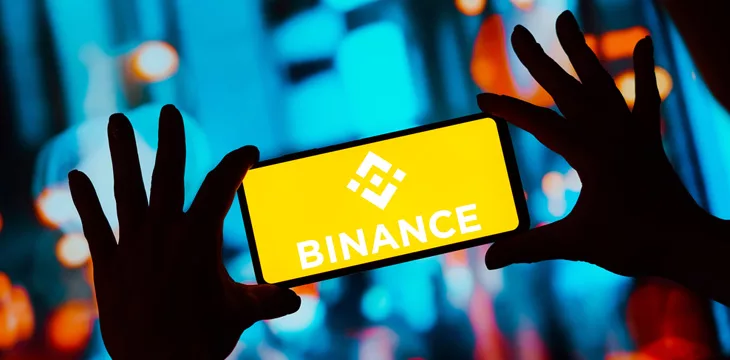|
Getting your Trinity Audio player ready...
|
Binance founder Changpeng ‘CZ’ Zhao doesn’t like people thinking he’s a gangster, even as the founder of the world’s largest cryptocurrency exchange emulates gangsters’ strategies for eliminating negative publicity.
On Tuesday, the Guardian published a lengthy profile of Michael Lewis, author of such non-fiction classics as The Big Short, Moneyball and, of course, Going Infinite, the new profile of disgraced FTX founder Sam Bankman-Fried (SBF), whose criminal trial got underway with jury selection on Tuesday.
Lewis is already taking heat for what many have perceived as his overly sympathetic portrayal of SBF. Lewis has also irked many by claiming that FTX had “a great real business” and wouldn’t have had to file for bankruptcy protection last November were it not for a ‘bank run’ that exposed how SBF had been ‘borrowing’ FTX customers’ assets to plug an $8 billion hole at his affiliated market-maker Alameda Research.
While going easy on SBF, Lewis appeared to lay a good chunk of the blame for FTX’s downfall on unnamed individuals who “cast aspersions on the [FTX] business.” This is a clear reference to Binance’s CZ and his public reaction to CoinDesk publishing an Alameda balance sheet that showed both it and FTX were overly reliant on FTX’s worthless in-house FTT token to square their financial accounts.
Binance received around $2.1 billion in a mix of FTT and U.S. dollars in 2021 as compensation for Binance surrendering its roughly 20% stake in FTX. At the time, SBF viewed CZ’s blatant disregard for regulatory compliance as negatively impacting FTX’s ability to lie to regulators in certain markets. But CZ didn’t take kindly to the public slight, and his equally public vow to “liquidate any remaining FTT on our books” following the CoinDesk report poured fuel on an already growing fire. FTX filed for bankruptcy five days later.
But when it came to Lewis telling the FTX story, it seems CZ was determined to thwart Lewis’s efforts to plant a big black ‘villain’ hat on CZ’s head. Lewis offered the Guardian’s Samanth Subramanian a tantalizing tidbit on this front, which she recounted thusly: “Lewis told me a Hollywood agent had called him and, on Zhao’s behalf, offered millions of dollars to buy and bury the movie rights to Going Infinite. Being cast as a louse in a Lewis story is a very public indignity. Zhao did not respond to a request for comment.”
CZ is likely all too aware of how the real-life collateralized debt obligation (CDO) manager Wing Chau was portrayed in the film version of The Big Short. Played as impossibly smug by Byron Mann, Wing Chau details his absolute disinterest in the financial carnage his exotic derivatives might wreak so long as he gets handsomely rewarded. This prompts Steve Carell’s character Mark Baum (based on Steve Eisman) to call the man sitting opposite him “an incredibly… big piece of shit.”
CZ has already earned that designation within the cryptocurrency sector, thanks to his years of tireless efforts to manipulate various tokens’ fiat price while laundering the proceeds of crime on behalf of everyone from Islamic terrorists to North Korea to Russian mobsters.
But it seems CZ would prefer not to have countless millions of individuals who wouldn’t touch ‘crypto’ with a 10-foot pole but would pay $12 to sit in a darkened theater munching popcorn, gesturing at the actor playing CZ onscreen and muttering “man, what a c**t” to their movie dates.
Of course, CZ will almost certainly play his race card soon, arguing that Lewis is going easy on SBF while hanging a giant ‘yellow peril’ sign around CZ’s neck because Lewis is racist (further illustrated by the Wing Chau portrayal). Much as CZ accused Forbes of racism for having the nerve to call CZ a “Chinese Canadian billionaire.” Well, it’s either that or ‘incredibly big piece of shit,’’ so pick your poison.
Let me have my little vicious circle
Because there really is nothing new under the sun, there’s precedent for CZ’s bid to strangle his imminent cinematic portrayal in the cradle. And in a neat bit of synergy, it also involves a notorious criminal.
Way back in 1945, Paramount Pictures was prepping the release of its adaptation of Charles Jackson’s novel The Lost Weekend, a harrowing account of a man suffering from writer’s block who goes on a 48-hour booze bender through New York City. Directed by Billy Wilder and starring matinée idol Ray Milland, it was one of the most hotly anticipated films of that year.
Not everyone shared this public enthusiasm. Liquor manufacturers, uneager to see their product play the villain in a film guaranteed to be seen by most of the country—in those pre-television years, 60% of the population saw at least one movie a week—decided to do whatever it took to get out of the way of this oncoming train.
Enter mobster Frank Costello, the head of the Luciano crime family at the time. According to several Wilder biographers, Costello approached The Lost Weekend’s producers with an offer on behalf of the liquor industry: we’ll pay $5 million if you burn the film’s negative before it’s released into theaters.
Apparently, it was an offer the producers could refuse, as the film was released and became a major commercial and critical success, winning Academy Awards for Best Picture, Best Director, Best Actor, and Best Adapted Screenplay. Wilder later made a joke of the Costello story, saying if he personally had been offered the $5 million, he’d have burned the negative himself.
Perhaps CZ’s biggest mistake in approaching Lewis with an offer of mere ‘millions’ was failing to adjust for inflation. Costello’s 1945 offer would be worth around $85 million today. So CZ is not only a crook; he’s a cheapskate. And if it turns out his offer to Lewis was made in BNB—Binance’s equally worthless version of FTT—he’s also a moron.
Follow CoinGeek’s Crypto Crime Cartel series, which delves into the stream of group—from BitMEX to Binance, Bitcoin.com, Blockstream, ShapeShift, Coinbase, Ripple,
Ethereum, FTX and Tether—who have co-opted the digital asset revolution and turned the industry into a minefield for naïve (and even experienced) players in the market.

 04-25-2025
04-25-2025 





